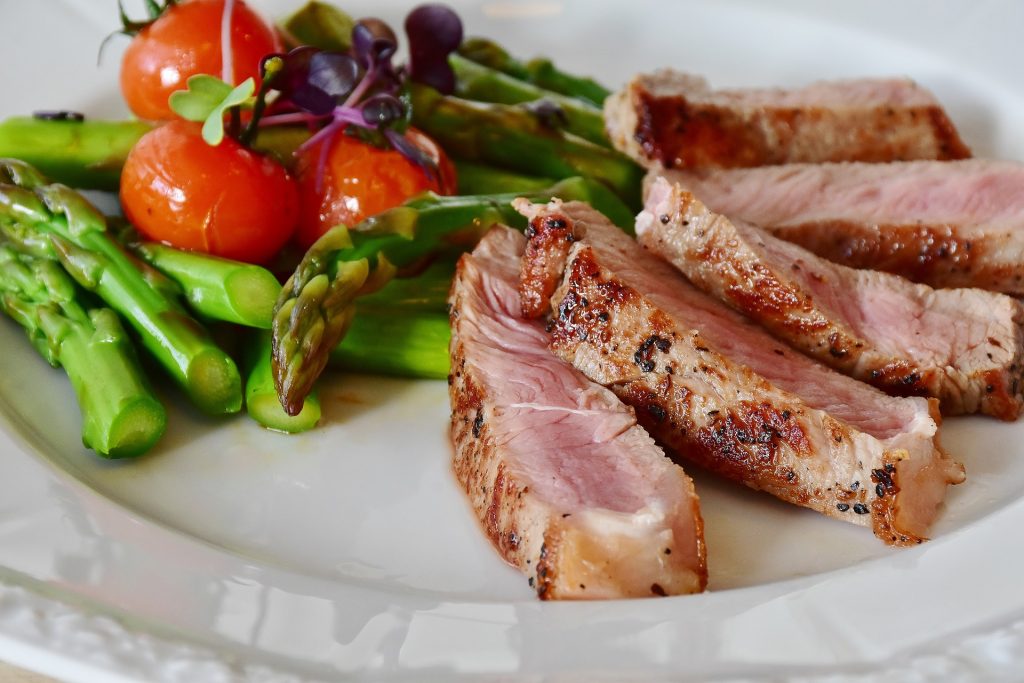Playing soccer is physically demanding and energy intensive, requiring a healthy body to function properly. To attain the proper body shape for optimum performance, soccer players must follow a regimen that allows them to eat healthy regularly.
This is not as easy as it may sound. Firstly, a soccer diet plan will require that a player give up eating certain foods, at least at particular times of the day. Essentially, you will not have the freedom to eat whatever you want, whenever you want. By sticking to an acceptable diet plan, a player will be in good health and improve their performance on the field.
What counts as good soccer nutrition?

There are a number of guides on what constitutes healthy eating for soccer players. Most experts in the field of sports nutrition and science agree around similar principles regarding what an athlete should be eating. The macronutrients – carbohydrates, proteins and fats – are recognized as the main components in sports meals, providing a balance of good health and performance. An athlete should organize their meals to where carbohydrates are the highest portion of their meals, making up between 60% and 65%, proteins between 15% and 20% and fats making up whatever is left.
Good sources of protein for soccer players include lean and low-fat meat, fish, eggs, and non-fried seafood. Dairy and beans also provide rich protein for replenishing tissues. There is a range of options available for energy, everything from fast-absorbing carbohydrates like watermelons, waffles and pancakes, to slow-absorbing carbohydrates like apples, milk, yogurt and broccoli. When it comes to fats, contrary to what you may have heard, they are not all bad. By all means, a soccer player should avoid fried foods and other unhealthy fats, however there are healthy fats like extra-virgin oil, nuts and fish, all having monounsaturated fats which are good lubricants for protecting the body’s organs during sports activity.
How Much Food is Enough?

Food quality is very important, but so is the quantity. If young athletes run out and play without eating enough of the healthy nutrients that their body needs, then they will find themselves struggling to maintain a high level of play for a long period of time. Athletes need to eat the right amount of food in order to provide energy to different parts of their body which support the intense motion involved in soccer. This energy value from food is what is normally referred to as calories.
An athlete can calculate approximately how many calories they must consume in a day by multiplying their current body weight in pounds by a number between 22 and 24. This will determine the number of calories a soccer play needs daily for optimum performance. Eating the proper amount will offset the large number of calories a player burns while playing soccer.
Eating at the Right Time

The timing of meals is also extremely important for an athlete. Players will have to plan their meals accordingly before games and practices. If an athlete prefers a large meal, then they should plan to eat at least a few hours prior to playing. This will give the athlete enough time to eat, digest, absorb and metabolize all the beneficial nutrients. The closer an athlete approaches any physical activity, the smaller the meal should become. While portions will be smaller, the contents of the meal should generally remain the same.
Eating at the right time after a game is just as important as before the game. It is highly recommended to eat within thirty minutes following exercise. Within this time frame is when the player’s glycogen stores are wide open and available to absorb essential nutrients. Any post-game meal should contain a mix of carbohydrates, proteins, and healthy fats.
Since food provides energy which fuels the body, it is of extreme importance that soccer players make the right choices when it comes to their nutrition.



